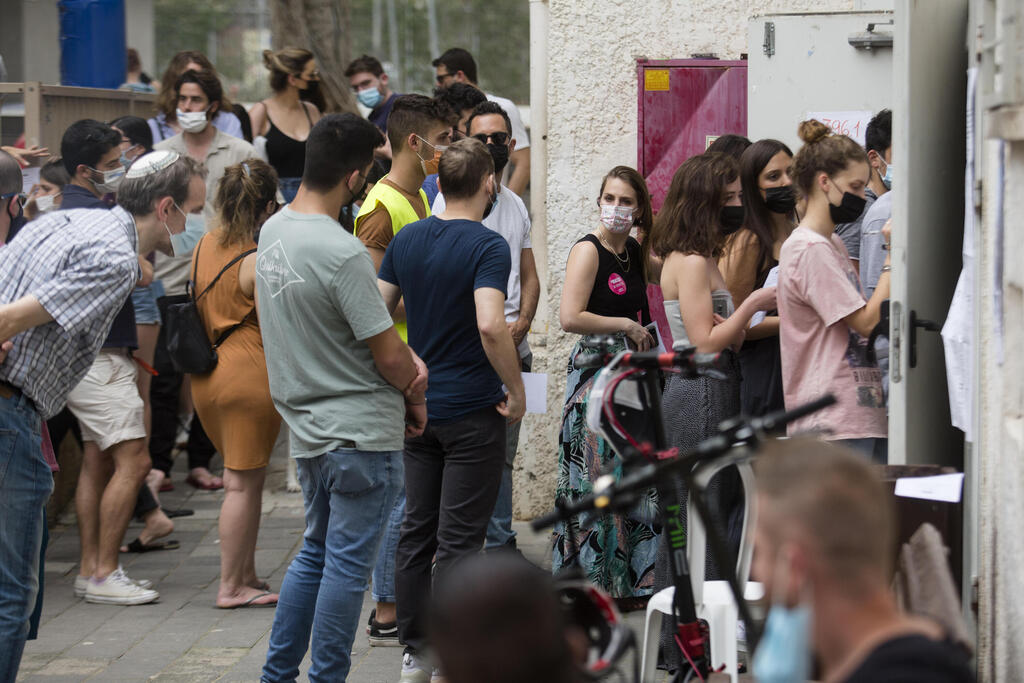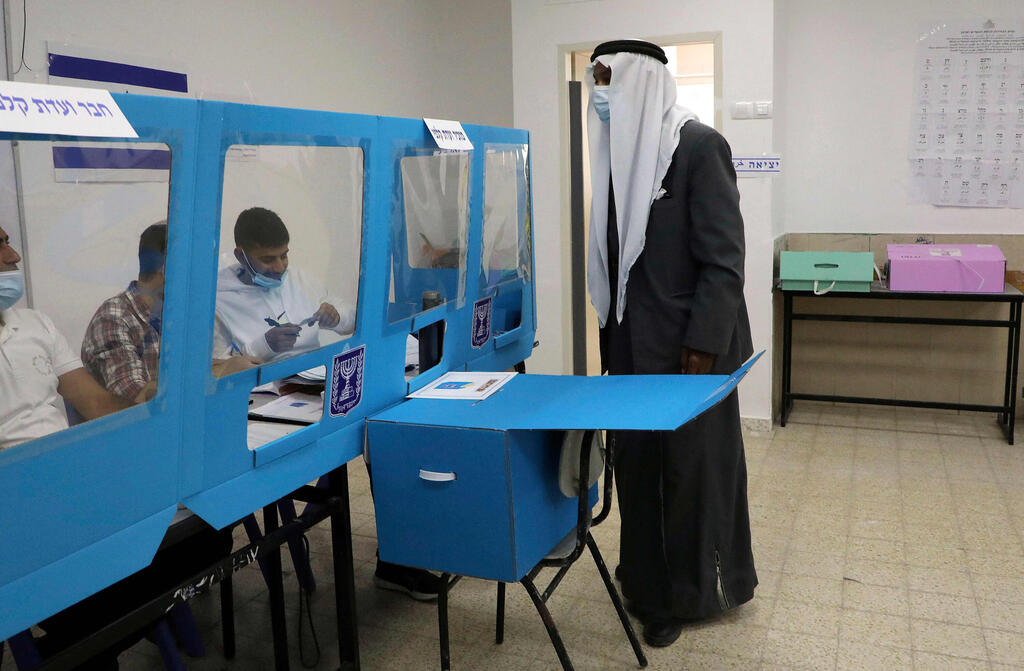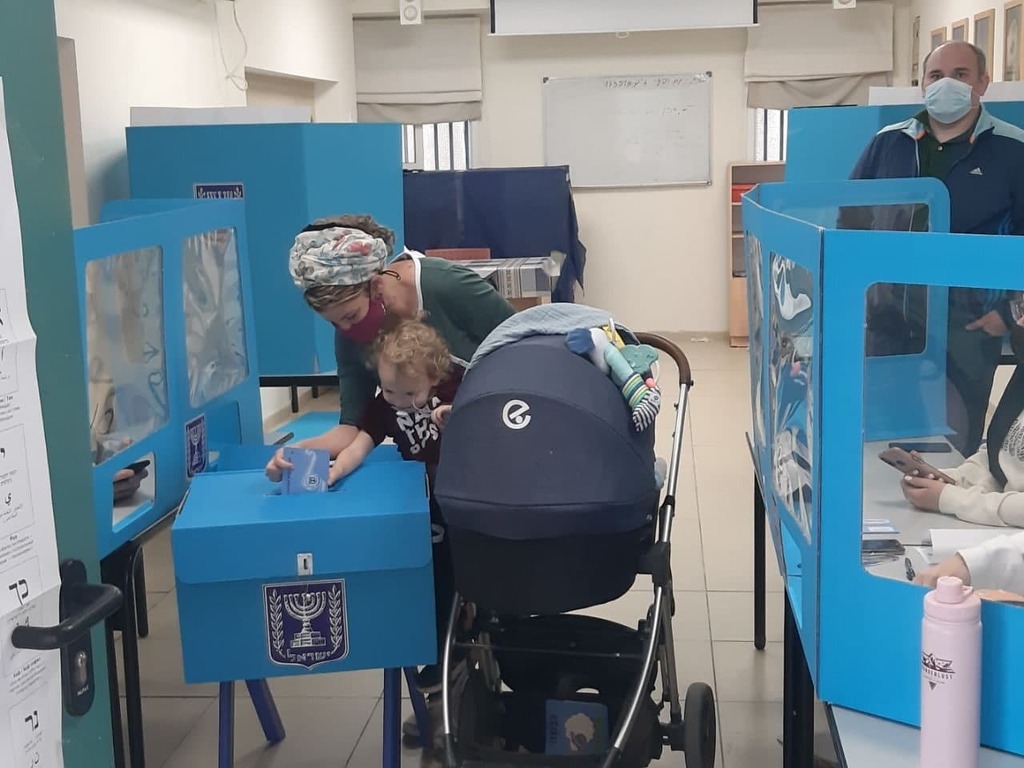Israeli voters on Tuesday expressed their concern at the prospect of a fifth election in two years as poll officials reported a lower voter turnout compared to previous election rounds.
"Unfortunately, this downward trend persists," said Central Elections Committee Director General Orly Ades. "I hope voter turnout won't decline this [election] round, and I still insist it won't go under 70%. I call on the public to go out and vote. We've done so much to make this happen. There's not much time left."
3 View gallery


Voters waiting in line to cast their vote in Israel's fourth election round in just two years in Tel Aviv
(Photo: Gettyimages)
As of 2pm, only 34.6% of eligible voters have cast their vote, a substantially lower figure than that reported at the same time in previous election rounds.
There were over 6.5 million eligible voters in Israel who could cast their ballot at over 13,500 polling stations scattered across the country, 751 of which were designated for the country's 14,000 coronavirus patients.
"The atmosphere is heavy and I very much hope for change," said Benny, who lives in Raanana. "This is our fourth attempt and I am waiting to return to sanity with a different government."
Sarit Spitz, who also resides in Raanana, told Ynet that although she enjoyed the multiple days off work she got in the previous two years thanks to recurring election days, she still had much criticism against decision-makers.
"It feels like each and every one of them is too busy with their own ego and how to promote themselves," she said. "If our leaders were less concerned about who the prime minister would be and found a way to work together, this would have trickled down to everybody else. I'm not sure my vote was a part of a strategy or came from the bottom of my heart this time around but I believe that in the end, I made the right choice."
"I was a bit hesitant because of the unpleasant situation in the country," said Yehudit from Tel Aviv. "A fourth election in two years is a catastrophe, it's really terrible and I hope this would end. I hope we won't meet here again for the fifth time, and I hope I voted well."
Oren from the West Bank settlement of Kedumim — where Religious Zionism alliance leader MK Bezalel Smotrich lives — told Ynet that he feared a low voter turnout in the area, but that sentiment had dissipated once he saw members of his community and neighbors flocking to the polling stations.
"In the beginning, things were very sleepy around here, but then messages started pouring in that woke everyone up. I hope this is where we end all these election rounds and we won't get dragged into another one."
3 View gallery


A member of Israel's Bedouin community casts his ballot in the southern city of Rahat
(Photo: AFP)
Members of Israel's Arab minority, which constitutes around 20% of the country's population, gave bleak predictions regarding the sector's voter turnout which has reached historic highs in previous election rounds, and attributed a potential decline to the Islamist Ra'am party splintering from the Joint list Arab party alliance and the latter's support of LGBT rights, a subject which remains taboo among the highly conservative Arab community.
"[Ra'am Chairman] Mansour Abbas says he's for the rights of the proud community, which is false," Att. Adham Odeh from Haifa told Ynet. "The Joint List has voted for canceling conversion therapy and I hope this won't affect voter turnout in the Arab sector."
Odeh also said he thought Prime Minister Benjamin Netanyahu's attempts to court votes from the sector "would only embolden members of the community to vote for Arab parties."


